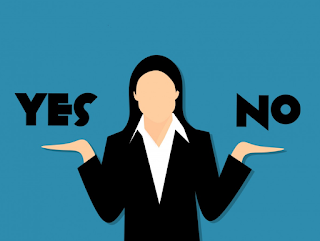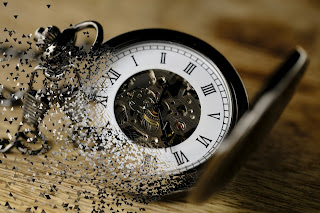Objections and Refutations: FAQs about the Free Will Illusion
 |
| Credit: Needpix |
Hello folks,
I've received lots of comments about my previous notes on the illusory nature of free will, some in the form of comments on the facebook note itself and others in private messages. I apologize for being late in the response but I had to pause for the community medicine exam. To make things simple, I'll answer the questions in a Q&A style ... استعنا على الشقا بالله :)
Q1. Why do I have the ability to make simple choices that don't have important consequences? After All, I could have been watching football rather than reading or debating philosophy!!
There are multiple problems with the previous question. First of all, it contains a circular argument, which assumes the existence of choice in proving that there is a choice. Or rather, it equates the PERCEPT of free will (what I consider to be an illusion) with the actuality of free will. The second problem with the previous argument is that it equates lack of predictability with freedom of choice. But in scientific language, this is incorrect. The brain is very difficult to predict, indeed, but it's not because we have free will, but because of what is called the Butterfly Effect. This term refers to systems where there are so many interactions and background noise that even the slightest alteration of the input can tremendously affect the outcome. The same is true in the brain, and this was only recently discovered by the way (in 2010). Basically, just a minor leak of neurotransmitter could affect the outcome of an entire brain region in one way or the other ... Again, it's a determined, but difficult-to-predict, system.
Q2. But why does it FEEL like I'm in charge of my choices?!
This is one of the most difficult questions in philosophy. Could we have an illusion based on a non-existing phenomenon?! Well, yes ... and no! Every illusion has a basis in reality - in this case the fact that some processing is taking place to calculate an outcome among many alternatives. But, not all aspect of the illusion reflect reality. It's just like the Necker Cube, or any other optical illusion, where your perception can change despite the input being the same (illusion based on interpretation of a part of reality).
The truth is, I have very little idea how or why we have this illusion of free will. But we can tackle this question in another way. A more fun-to-imagine way, that is. Check out this video:
Does the rat feel it's free? Does it not feel in charge of its choice of whether to turn right or left? Is it not very probable that the rat has the illusion that it freely chose to turn right or left without knowing why it did so?! Without knowing that it's a simple electric stroke to its pleasure centre that drives its perceived choices?! I am not providing answers here; I am only asking questions, the most important of which is why do we assume that we are not that rat? What if our situation is the same as the rat, with molecular, genetic, environmental and "random" butterfly effects controlling everything instead of the electric stroke to our pleasure centres?!
Q3. You said that "the moment that choice is followed with reward or punishment, it becomes an obligation" ... but why do you consider it to be an obligation; Why not consider it to be a motive that you can take or choose to neglect?!
It depends on the amount of reward or punishment. If we hypothetically assume the existence of free will, it becomes narrower and narrower the more severe the punishment becomes and the more rewarding the prize becomes. Motives are -by definition- breaches to the freedom of choice; they push you to do one thing or the other ... just like someone mechanically pushes you towards one street or the other. The only difference is: reward and punishment push you invisibly, by affecting your hypothalamus, insula and the limbic system (centres whose firing corresponds to fear/reward and reflects in the brain's final outcome). So yes, I should've framed my words to reflect the LIMITING POWER that reward and punishment have on choice, because after all, reward/punishment cannot turn choice into an obligation unless they reach infinity.
Q4. You say that we mean mean "rational choice" when we refer to choice? But why assume that? What about the mother who chooses to protect her child without rationally deciding to do so?!
There are two options that explain why the mother is protecting her child: either she did it based on rational reasoning or her "choice" was irrational. I can answer this question in a scientific manner and say that mothers protect their children because of oxytocin that gets secreted in excess amounts and neuronal connections that are predetermined in the very physiology of all mothers. But even without referring to the biological mechanism behind motherly love, a simple philosophical argument can answer this question. Isn't it strange that almost all mothers "choose" to protect their children?! If they really had free choice, why do we see this pattern? Doesn't this suggest that -indeed- motherly love is an instinctive drive rather than a true "choice"?!
Q5. Why do you see emotions as a restrain to free choice?! How come you consider the fact that all decisions have an emotional component to be an argument against free choice?!
Actually, I consider BOTH emotions and rationality to be the furthest you can get from free choice. But I used emotions here because it's easier to tell someone that their emotions are "out of control" than to tell them that their rational thinking is out of control. It's a matter of getting my point across, nothing more. Think about it, which of the following choices "feels" more free: falling in love with someone or choosing a new laptop to buy?! Emotions have a much less attached illusion than rational choice, which is why it makes a powerful argument argument against free will to show that all choices have an emotional component.![]()
Q6. Regarding your supermarket analogy, what if I choose the nearest product out of the 100+ choices to save my time?!
Well, did you really choose to? Or is the environmental and developmental effects force you to make that choice?! My supermarket analogy is just what it is: an analogy. I cannot argue with an analogy because if I did so, I would be committing a fallacy in logic called the "fallacy by example". Examples don't always mimic reality. But again, assuming that example is true, even my "choice" of the nearest option has roots in environmental, genetic, butterfly and/or developmental factors.
Q7. Why do you consider us to be like calculators?! If a calculator had a soul it'd be just as "irrational" as humans are, wouldn't it?
Well, who knows. What does a soul do? Is it the thing that "chooses"? Does it have an invisible effect on our neuronal firing? What and how could this soul-brain interaction happen?! Actually, this is one of the famous questions to dualism, one that puzzled me for a long time before I gave up dualism to materialism. It's called "The problem of interaction", you can read more about it here.
If we can sufficiently explain the behaviour and "choice" of human beings using perfectly natural means, why assume that supernatural means affect that behaviour?! Why should we assume that the soul has an effect on choice if we can totally explain behaviour in terms of neuronal patterns?! The previous question is actually a reflection of a philosophical tool called Occam's razor. That is, if you have a system that you can fully explain and there's an extra claim that is redundant and does not add to to the current understanding, then why should you have it?!
Q8. Maybe we have LIMITED choice but we're still free to control our environment can't we?! We choose who to become friends with, we choose what to read and what to leave and that ultimately reflects in our choices, doesn't that make us free (as in this video)?
Well, no! To start with, the previous question has a circular reasoning component. That is, it assumes the existence of free choice in trying to prove the existence of free choice. If I say, I "choose" my environment, therefore I have free choice, I've already assumed that I have free choice when choosing my environment. Confusing, huh? Again, even if we ignore the circular component of this question, the answer to it is almost certainly in the multifactorial nature of any seemingly-uncaused choice, as well as the Butterfly effect previously mentioned. I think the real core of the debate is what is known as the "Hard Question of Consciousness", which was best expressed in one of the comments I got to my earlier note:
"It's a matter of whether you think humans function as parts of the physical environment they're in, or as separate entities which do not function by the same physical rules. It's a question of what is ME. Am I or am I not separate from the neural processes in my brain?"
My response to this question lies in a series of observations and phenomena that shall hopefully convince you that you are your own brain:
I. Why is it that when parts of the brain get damaged, you lose certain aspects of your personality?! Why is it that when the orbitofrontal cortex gets damaged you lose ethics and when the hypothalamus and limbic system gets damaged you get emotion-related disorders? (N.B. Google Phineas Gage).
II. Why is it that we can image (using fMRI) thought processes as they happen in real time and can even correlate the different types of thoughts, memories and even attention to neuronal firing patterns?! How come we can even link specific CELLS to particular percepts?!!
III. Why is it that we can actually CONTROL behaviour, as was the case with the remote-controlled rat (in the previous video) and using light-controlled neuronal firing. A new technique called optogenetics can be used to control an experimental animal's behaviour in a robot-like manner.
IV. How come we can predict behaviour based on biological markers such as the level of oxytocin (governing social interaction) and testosterone (governing aggressiveness in males)?!
V. How come even memory can be linked to specific firing patterns and synaptic connections that we can see as they change in real time?!
VI. Why do apes, rats, cats etc have the same (or very similar) firing patterns and areas corresponding to the same behaviour as humans?! Why do we think -then- that we're free while they're not?! Even more fundamental, why do we think that we are not "just" our brains while they're not?!
So to conclude, let's look at the common objections and their refutations:
* "I can simply choose to read a book rather than watch TV" --> multifactorial nature of neuronal firing and Butterfly Effect
* "The soul is what makes the choice despite the neuronal correlate" --> the problem of interaction and Occam's razor
* "I may choose to do something simply because I like it" --> could you control your emotions? So what's so free about this?!
* "I control my brain, which only seems to make the choices" --> you are your brain, refer to all the data previously mentioned.
* "My brain (which is me) makes the choices, but that doesn't make them determined" --> your brain is a biological organ, and operates like everything in the physical world. That's why we can predict its firing beforehand in response to stimuli and can even control it using various scientific techniques.
Cheers :)


Comments
Post a Comment